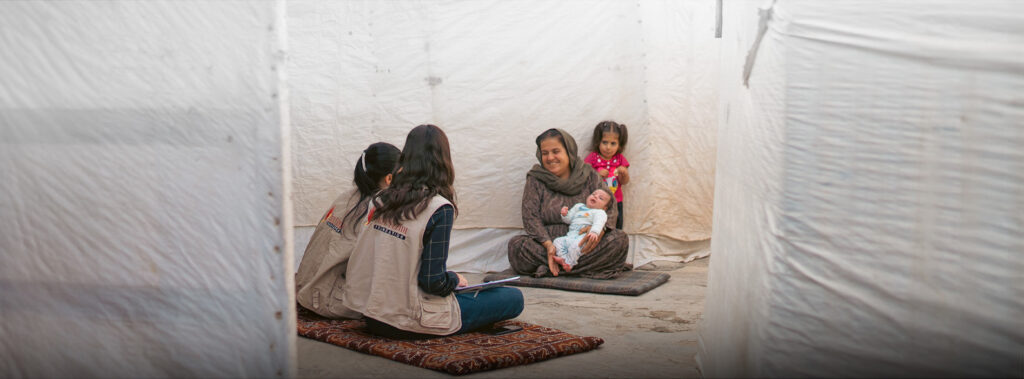
In this Human Rights Voices feature, The Global Humanitarian speaks with Pari from Free Yezidi Foundation (FYF), an international non-profit dedicated to supporting the Yezidi community in the aftermath of the 2014 Yezidi Genocide (perpetrated by ISIS). FYF promotes the rights and well-being of Yezidis in Iraq and the diaspora, with an emphasis on women’s empowerment, the pursuit of justice, and helping the community rebuild through trauma treatment, education, training, civic engagement, and economic development.
Can you tell us about your organization and the human rights issues you focus on?
The Free Yezidi Foundation (FYF) is a Yezidi, women-led nonprofit founded in 2014 in response to the Yezidi Genocide committed by ISIS. We provide protection, mental health and psychosocial support (MHPSS), legal aid, justice, education, and economic empowerment—holistically supporting Yezidis, with a focus on women, youth, and displaced survivors of mass atrocities and gender-based violence. We also work with partners who support other religious and ethnic minority communities in Iraq.
We began our work with the establishment of Women’s and Children’s Centers in Khanke IDP camp, providing trauma-informed support, education, and livelihoods. Since then, we’ve expanded with the creation of an Enterprise and Training Center (ETC) in Khanke and holistic service centers in Sheikhan and Shariya, offering education, civic engagement, MHPSS, protection, and community outreach on rights awareness and violence prevention. At the ETC, mental healthcare and legal aid are integrated with education, skills training, and pathways to income generation and job opportunities for vulnerable women. Our economic empowerment initiatives include artisan-led production of handmade items, such as the Chonky Animals® line of hand-knitted stuffed animals and Crafts and Enterprise® line of made-to-order traditional carpets. You can find our products on the FYF website and social media pages. Additionally, the Sugar is Sweet® Bakery and Café, run by displaced Yezidi women, provides hands-on business experience and employment, with all proceeds benefiting artisans, bakers, and facility maintenance.
What makes FYF unique is that we’re one of the few women-led Yezidi NGOs in Iraq, with a majority female staff composed of IDPs and genocide survivors. This ensures our programs are survivor-centered, culturally aware, and built on trust.
We’ve successfully implemented major international grants and work closely with global partners while remaining deeply rooted in the community. Ultimately, our goal is to help the Yezidi community through direct support to women and survivors as they rebuild their lives with dignity and agency.
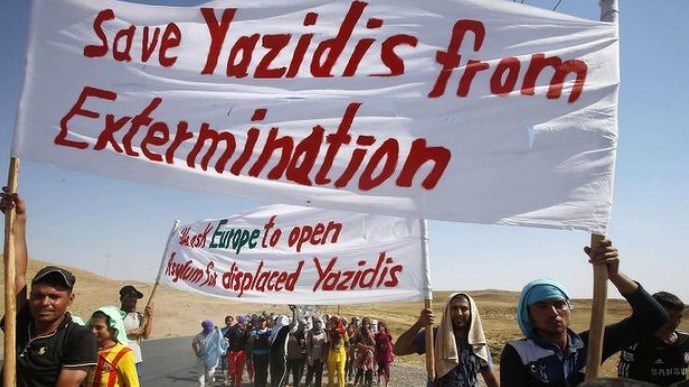
What inspired you to start Free Yezidi Foundation?
I fled Iraq as a small child and grew up in the Netherlands, and I have always carried a deep connection to our community. You can also find some more about my background here.
When the genocide began in 2014, I knew I couldn’t stand by—I had to act. Yezidis have endured persecution for many centuries because of our religion and ethnicity, and in 2014 it happened again.
I founded this organization to amplify Yezidi voices, especially women, advocate for their rescue, and support their healing and recovery. While we’ve made great strides, the work is far from over. These challenges persist, and I remain as committed as ever to fighting for justice, protection, and empowerment for Yezidis and especially women and children.
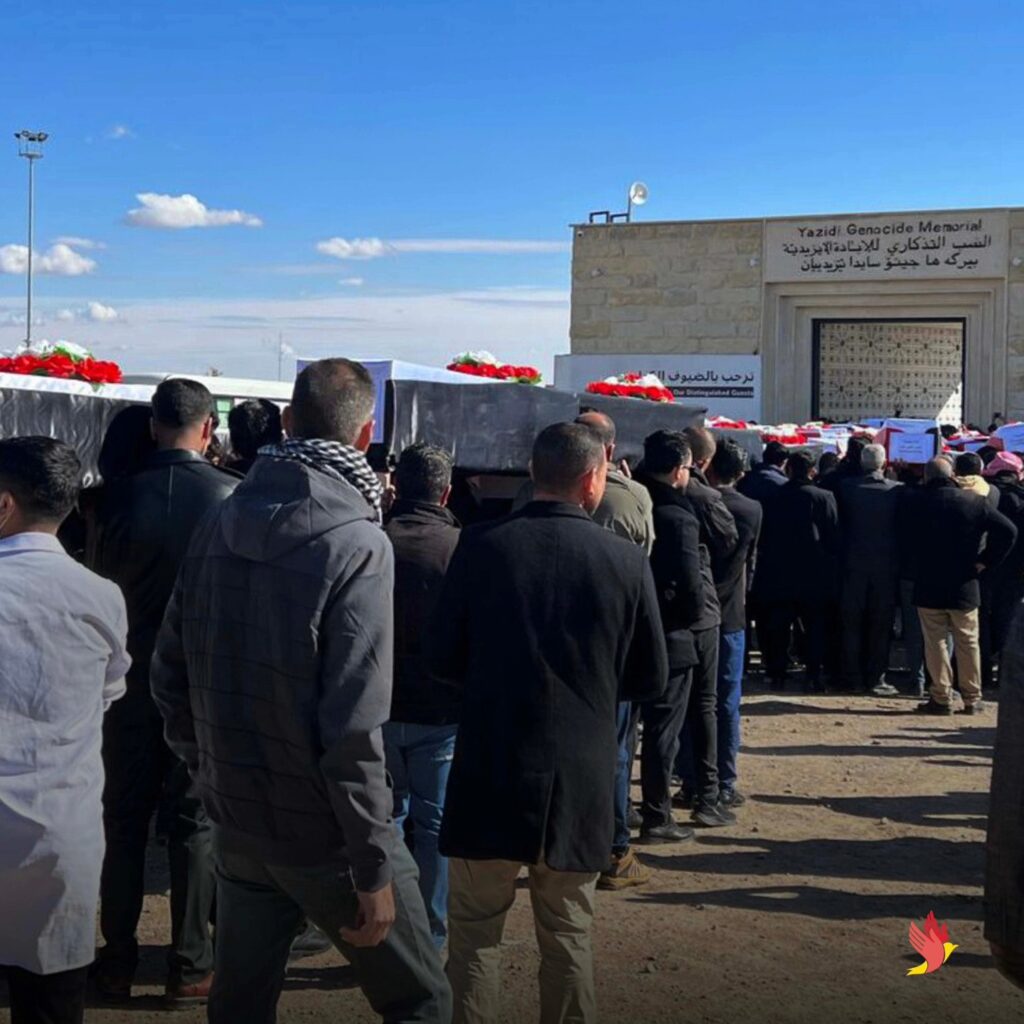
Why is this work so important in today’s world?
In a world grappling with widespread violence and oppression, smaller, minority communities often go unnoticed, their struggles overshadowed by larger global crises. But when we talk about the Yezidi Genocidewe must recognize that it is not a single event confined to history. Genocide is an ongoing process of marginalization, deprivation, and systemic violence. A decade after ISIS atrocities, the Yezidi community remains in crisis. More than 2,600 Yezidi women and children are still unaccounted for. Nearly 200,000 Yezidis continue to live in displacement, just hours from their ancestral homeland. Dozens of mass graves remain unexhumed, leaving families in agonizing uncertainty about the fate of their loved ones. Meanwhile, access to sustainable resources and trauma recovery services is woefully inadequate.
The aftermath of the Yezidi Genocide persists in these unresolved injustices, in the lack of meaningful reparations, and in the absence of long-term support for those who survived. That is why the work of FYF is so critical. We refuse to let this issue fade into the background. We fight for justice, for sustainable recovery, and for a future where Yezidi youth—especially women and girls—can thrive in Iraq with equal rights, security, and dignity. Our mission is not just about remembering the past; it’s about shaping a future where Yezidis are no longer just surviving, but thriving.
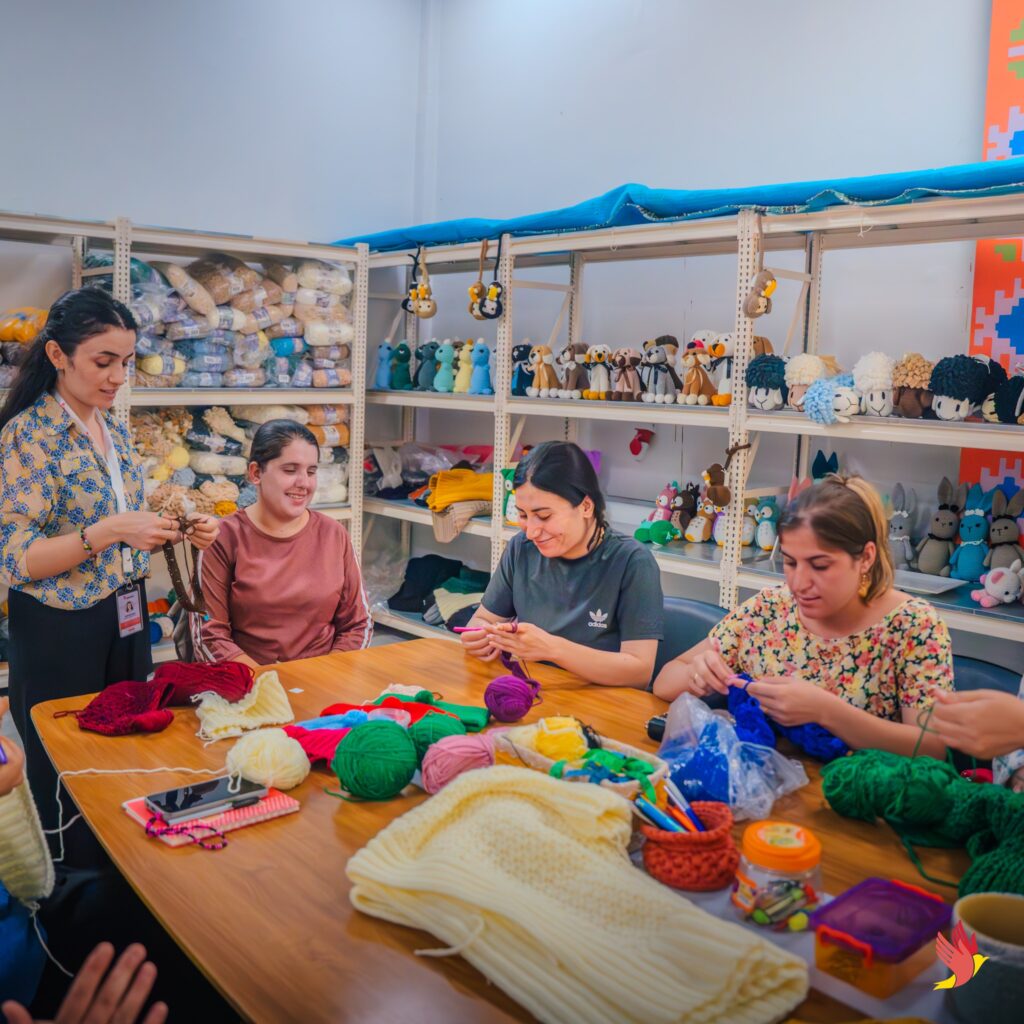
Can you share a particularly impactful experience from your work? What made it significant, and how did it shape your perspective?
There are several things that make FYF unique—not just as an NGO, but as a Yezidi-led NGO. One of the most significant is our holistic approach to empowerment. We don’t just provide individual services; we create safe, centralized spaces where our community members can access everything they need to heal and rebuild—education, mental healthcare, legal aid, livelihoods, and justice—all in one place. Our ETC embodies this approach, and we’ve seen firsthand how this model enables survivors to recover in a sustainable and dignified way.
The smallest thing can have a ripple effect. In the early years of FYF, in 2015, I met a survivor who had recently escaped from ISIS captivity. I knew her family and I did my best to help her overcome her struggles. You can read more about Zainab’s story on our website (page 7). When I think of the time I spent with individual survivors, especially just after they escaped or were rescued, that has been the most important thing. It is easy to notice their despair and loneliness. I always focused on being friendly with them, showing them that someone cares, and that they have not been forgotten. This has been an important pillar of my work and the FYF way of approaching those who have suffered so much.
Feel free to watch two of our YouTube videos where you can learn more about FYF and survivor stories. Click cc English for subtitles.
Feature explaining the work of FYF as well as impact stories from survivors
I am also particularly proud of our economic empowerment programs for Yezidi women, implemented at the ETC. Unlike traditional humanitarian aid, which can create cycles of dependency, we focus on sustainable solutions. Through our Chonky Animals® and Crafts and Enterprise product lines, displaced Yezidi women produce high-quality handmade goods for international markets, generating independent income that is not reliant on foreign aid. This is a game-changer in Iraq, where few NGOs implement this kind of approach.
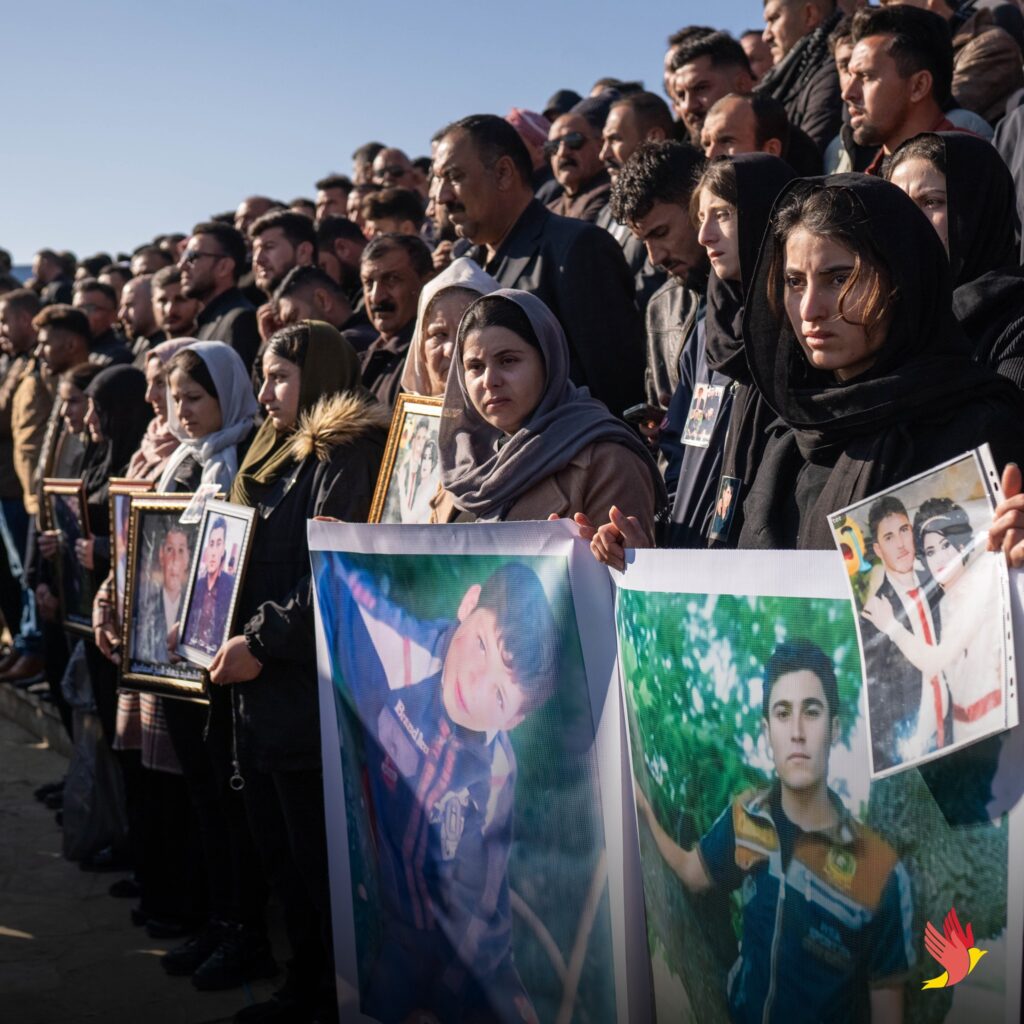
What are some of the biggest challenges your organization faces?
One of the biggest challenges we face is the decline in funding opportunities within the humanitarian and development sector. While this affects many NGOs, it is often the smaller, grassroots organizations—like ours—that suffer the most, despite being the ones on the frontlines, directly serving the communities in need. Large international organizations often receive the bulk of available funding, while local organizations with deep community ties struggle to sustain their critical work.
Another challenge is keeping the Yezidi cause on the international agenda. With ongoing crises unfolding across the globe, it has become increasingly difficult to ensure that the plight of the Yezidi community remains a priority. The genocide may have begun in 2014, but its effects persist, with thousands still missing, displaced, or struggling to rebuild their lives. Yet, as media and donor attention shift elsewhere, our community continues to face significant barriers to recovery.
Additionally, our commitment to women’s rights and empowerment has not been without resistance. Challenging deeply ingrained patriarchal norms is never easy, but we refuse to back down. Women’s empowerment is not just a matter of justice; it is essential for the recovery and future resilience of the entire community.
However, by far the greatest challenge is the search for more than 2600 Yezidis who are still missing and unaccounted for. It is the hardest issue for our community and the biggest challenge to overcome.
Despite these obstacles, we persist. The Yezidi community still faces immense challenges, and we remain unwavering in our fight to secure the attention, resources, and opportunities they need to recover and rebuild.
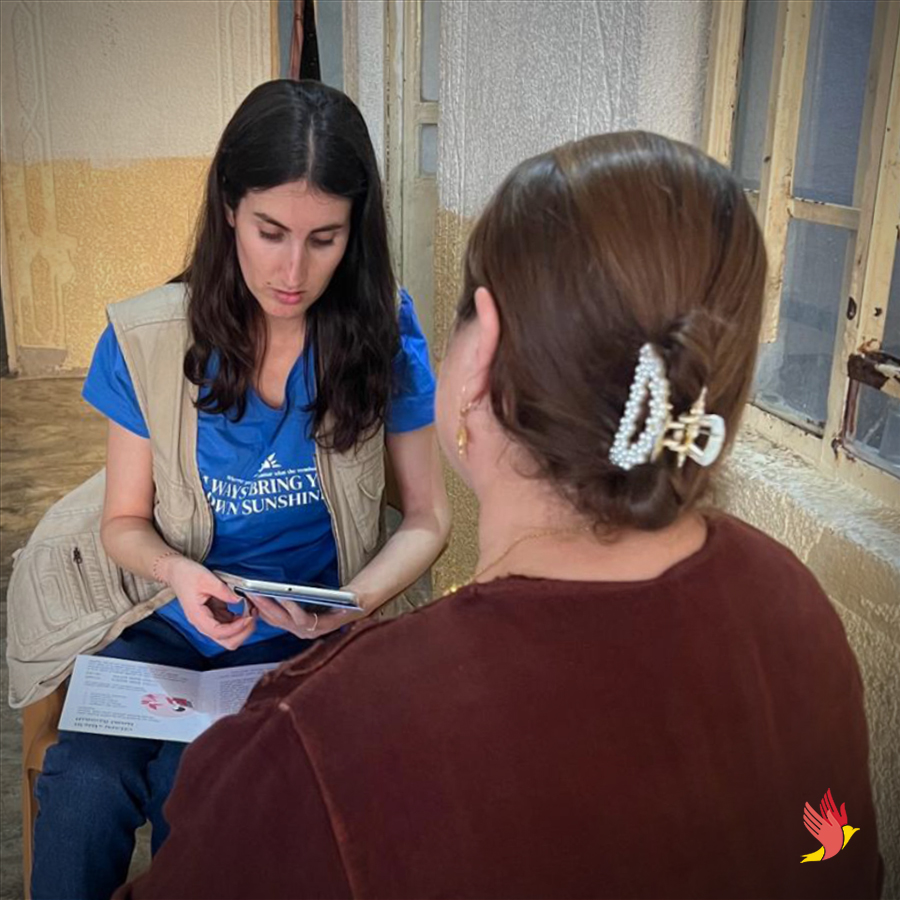
What keeps you motivated, despite the challenges?
What keeps me motivated, despite the challenges, is my team—an incredible group of individuals, many of whom are Yezidi women who have survived genocide, displacement, and systemic discrimination. Watching them not only rebuild their own lives but also become powerful changemakers in our community has been one of the most rewarding aspects of this work. They are the leaders for the next generation.
In the aftermath of genocide, Yezidi women have finally been given the space, in many cases by necessity, to step into leadership roles, advocate for their rights, and take charge of their futures. For many, this marks a significant shift; historically excluded from decision-making spaces, they are now at the forefront of their community’s recovery. As they become providers for their families, sometimes the primary providers, they are challenging traditional gender norms and paving the way for the future.
What is something you wish more people understood about this type of work? Are there any misconceptions about it?
One of the biggest misconceptions about humanitarian and development work is that solutions must come from the top down—from large international organizations or external decision-makers. In reality, the most effective and sustainable solutions come from the ground up, led by the very communities affected. Yet, the sector remains dominated by a top-down infrastructure, where those far removed from the realities on the ground dictate decisions, drive programming and funding, and solutions for a community to rebuild itself after genocide. In many cases, these externally led ideas have wasted valuable resources.
I’ve long been an advocate for grassroots, community-driven, and survivor-centered approaches. Aid and development efforts must be shaped by those they aim to serve, not imposed by outsiders with limited contextual understanding. Donors and international actors must recognize that local, community-led organizations like FYF have the expertise, insight, and capacity to directly implement solutions. However, too often, international organizations act as gatekeepers, absorbing significant resources while sidelining local actors who are best positioned to create meaningful change.
What we need is a shift to prioritize direct funding to community-led initiatives, trusting them to lead their own recovery and development. We know what our communities need, and we are more than capable of delivering real, lasting impact.
How do you see your organization evolving over the next few years?
We are working towards establishing holistic service provision hubs in locations to serve the highest concentration of Yezidis. Our aim is to provide safe, centralized access to critical services, preventing mismanagement and further retraumatization. Over the next few years, we envision these centers becoming sustainable through income generation from product lines created by the beneficiaries, which we will help market internationally. These centers will empower Yezidi women and girls, offering them practical skills and resources to rebuild their lives, support their families, and challenge gender discrimination both within households and in the wider community. Ultimately, we aspire to create long-term, impactful change that fosters independence and dignity for the Yezidi people.
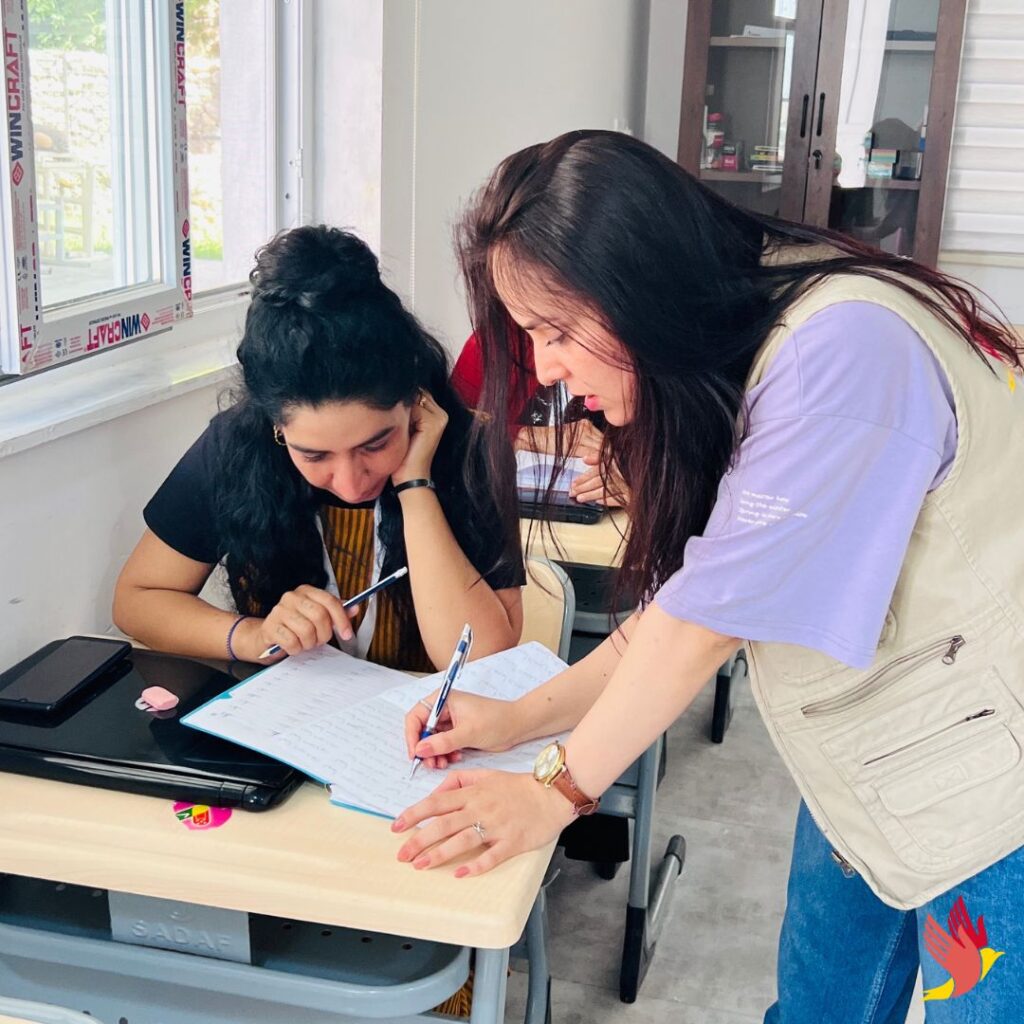
How can people support your work – whether through donations, volunteering, or advocacy?
People can support our work in several impactful ways, primarily through direct donations, raising awareness of the Yezidi cause, and advocating for our community. Sharing information about the Yezidi situation on social media platforms, with policymakers, and within their networks helps keep the cause on the international agenda. This visibility is crucial for securing the resources and attention needed to provide sustainable, tangible support to the Yezidi community. Our goal is to help shift the narrative from mere survival to empowering individuals to build brighter, more resilient futures. Every act of support, whether financial or advocacy-driven, plays a vital role in making this possible. Right now, the best way for people to support FYF is through donations. You can also follow us on Instagram and Facebook.
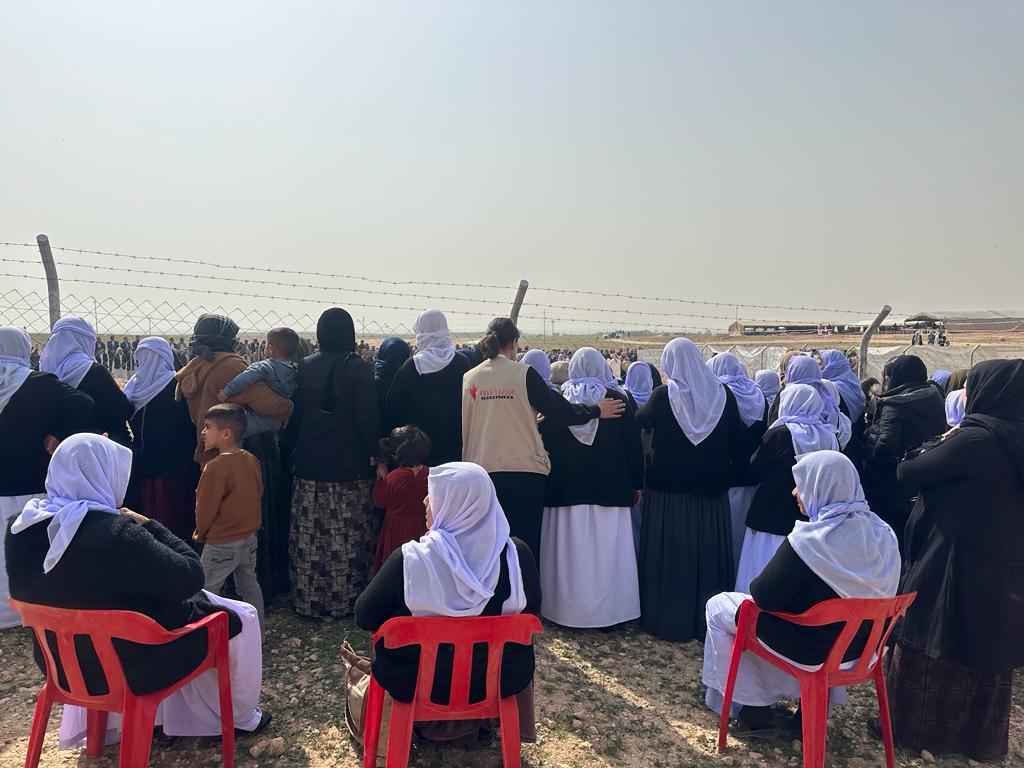
Is there a particular message you’d like to share with our readers?
My message to your readers is simple: Do not forget the Yezidi community. Do not forget our suffering. As the saying goes, ‘An injustice anywhere is a threat to justice everywhere.’ Though we are a small community, we have endured centuries of discrimination and systemic violence. We deserve peace, equality, and the same rights as everyone else in the world. It boggles my mind that 2600 Yezidi women and children were kidnapped in August 2014 while ISIS committed genocide against our people, and the silence from the feminists and human rights advocates is deafening to me. Speaking up for Yezidis, no matter who you are, can have a profound impact. Your voice can help bring attention to our cause, amplify our struggles, and support our fight for justice and dignity.
Looking for more human rights resources? Explore The Global Humanitarian.
Comment, subscribe, and follow me on Instagram @the.global.humanitarian
Please note: the views and opinions expressed on this blog are that of my own and do not represent the opinions of any agency mentioned.